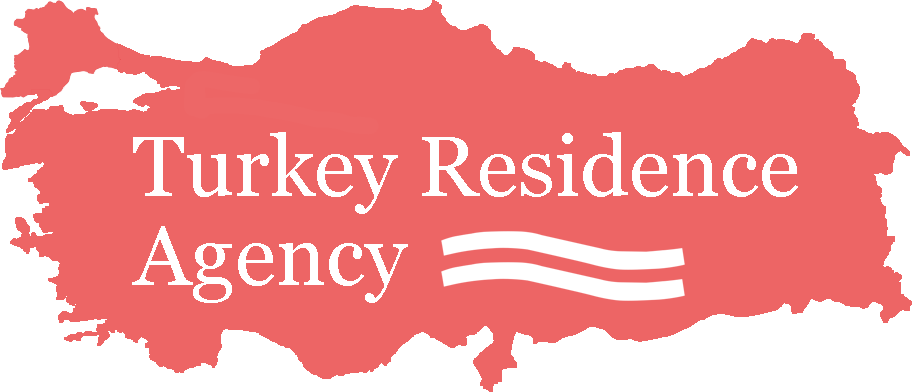Healthcare Access in Turkey: Utilizing the System as a Resident

Underrated Turkish Cities for Residency
March 25, 2024
Essential Turkish Vocabulary for Residents
March 25, 2024The landscape of healthcare access in Turkey has undergone significant transformation, evolving into a comprehensive network aimed at providing residents with efficient and quality medical services. As a resident navigating the intricacies of Turkey’s healthcare system, understanding the intersection of public and private healthcare provisions becomes paramount. The system is structured to ensure accessibility, facilitated by universal health insurance coverage and a proliferation of state-of-the-art facilities. Residents are bestowed with the right to avail themselves of a wide array of services, ranging from primary care to advanced specialized treatments. This integration of robust infrastructure and policy frameworks serves as the cornerstone for delivering equitable healthcare services across the diverse Turkish populace. It is imperative for residents to be well-informed about their eligibility, the registration process, and the utilization of these health services to fully leverage the benefits offered within Turkey’s healthcare ecosystem.
Navigating Turkey’s Healthcare Infrastructure
Navigating Turkey’s healthcare system begins with understanding how to access its dual-tiered infrastructure, which comprises both public and private healthcare providers meticulously interwoven within the national landscape. For residents, registration with the universal health insurance system, known as Genel Sağlık Sigortası (GSS), is a critical first step. This entitles them to affordable treatments at public hospitals, clinics, and family practice centers while offering the flexibility to opt for private healthcare services when preferred. As residents move through the system, they will encounter a diverse range of healthcare institutions, each characterized by varying levels of specialization and service quality. It’s essential for individuals to become acquainted with the nearest primary healthcare facilities, which serve as gateways to further medical services and referrals. Familiarity with local state-run hospitals and clinics, as well as an awareness of accredited private options, underpins a resident’s ability to efficiently manage and address their healthcare needs within Turkey’s multifaceted system.
Once registered under GSS, residents can navigate the public healthcare network through a centralized appointment system, known as MHRS (Merkezi Hekim Randevu Sistemi), which allows them to book appointments with specialists and access medical services. Health service provision in Turkey is hierarchically organized; primary care is offered through family physicians and smaller clinics, secondary care through larger state hospitals, and tertiary care is delivered at university and training hospitals, covering more advanced and specialized treatments. Meanwhile, the private sector appeals to those seeking shorter waiting times and a higher standard of comfort, often including more English-speaking staff, which can be particularly reassuring for expatriates. Knowledge of Turkish health insurance policies, identification of in-network hospitals, and understanding the process for obtaining referrals for specialized care are all pivotal for residents to efficiently use healthcare resources, making their experience with the Turkish healthcare system as seamless as possible.
For residents to fully capitalize on Turkey’s healthcare offerings, it is critical to be vigilant about ongoing changes and enhancements in the healthcare sector. This includes keeping abreast of new regulations, preventive health programs, and digital health initiatives such as the e-Nabız (e-Pulse) personal health system, which integrates patient data across various healthcare providers for simplified patient history management. Staying informed about one’s rights and the extent of coverage supports active engagement with healthcare professionals and informed decision-making. Moreover, building a relationship with a trusted family physician can help in steering one’s journey through the healthcare maze, particularly when dealing with chronic conditions or navigating complex treatment paths. By taking a proactive approach in understanding and interacting with Turkey’s healthcare infrastructure, residents can ensure they receive the timely, effective care they require while minimizing potential stress and maximizing the value of their healthcare services.
Strategies for Effective Utilization of Medical Services
To effectively utilize medical services in Turkey, residents must first register with the Social Security Institution (SGK), which is a straightforward process that grants access to a broad spectrum of healthcare benefits. Once registered, individuals can select a family doctor from their local health posts (Aile Sağlığı Merkezleri), serving as the first point of contact for medical concerns, ensuring continuity of care, and managing referrals to specialists when necessary. Understanding the referral system is crucial; seeing a specialist typically requires a referral from a family physician, creating a structured healthcare journey that is both efficient and cost-effective. Moreover, keeping abreast of the SGK’s list of covered medications and medical procedures can significantly reduce out-of-pocket expenses. By strategically engaging with the healthcare framework—from initial registration, choosing a family doctor, to navigating referrals—residents can streamline their interactions with the healthcare system while maximizing the benefits available to them.
Beyond registration and primary care navigation, residents should familiarize themselves with the public and private healthcare sector dynamics. While public hospitals offer a wide range of services covered by SGK, private hospitals provide an alternative with typically shorter wait times and more personalized care, albeit at a higher cost not always fully reimbursed by SGK. It is essential to verify the extent of SGK coverage before seeking treatment in private facilities. Furthermore, taking advantage of preventive care programs and regular check-ups can proactively safeguard one’s health and potentially circumvent the need for more complex treatments. Residents should also stay informed about the digital health tools available, such as the e-Nabız system, which allows patients to schedule appointments online, access medical records, and communicate with healthcare providers, thereby improving the ease and efficiency of managing health care needs.
Equally important is fostering a collaborative relationship with healthcare professionals, which not only enhances the quality of care but also empowers residents to become advocates for their own health. Regular communication with your primary care physician and specialists is vital, as they can offer guidance on lifestyle choices and manage chronic conditions effectively. Additionally, residents should not hesitate to seek a second opinion when needed, as this can provide further reassurance and help in making informed decisions regarding complex healthcare issues. By taking an active role in healthcare decisions, attending scheduled appointments, and adhering to prescribed treatments, patients can optimize their health outcomes and ensure they are making the most of Turkey’s healthcare system. As residents learn to navigate these strategies adeptly, the path to optimal health becomes less daunting and more attainable within the evolving landscape of Turkey’s medical services.
Understanding Patient Rights and Responsibilities in Turkey
In Turkey, the rights and responsibilities of patients are clearly outlined to ensure that both healthcare providers and recipients operate within a framework of mutual respect and understanding. As a resident, it is crucial to familiarize oneself with patient rights such as the right to informed consent, the privacy and confidentiality of personal health information, and the right to access medical care without discrimination. This also encompasses the right to be treated with dignity and to receive clear communication from healthcare professionals in a language the patient fully understands. Concurrently, patients are expected to adhere to their responsibilities, which include providing accurate health information, following prescribed treatment plans, and showing respect for medical staff and other patients. This equilibrium between rights and responsibilities is designed to foster a conducive environment for the delivery of high-quality healthcare.
Comprehending the scope of patient rights also enables residents to navigate the appeals process should they need to report any violations or concerns. The Turkish healthcare system has mechanisms in place for patients to voice grievances regarding unethical medical practices or unsatisfactory healthcare services. Residents are encouraged to seek assistance from patient rights representatives within hospitals, who are assigned to address such issues and facilitate communication between the patient and healthcare providers. Moreover, these rights are not only applicable within the domain of physical health services but extend to mental health care, ensuring comprehensive coverage. It is the combined responsibility of the Ministry of Health and various patient associations to uphold these standards and ensure patients are aware of their entitlements. Consequently, a well-informed resident is empowered to advocate for their health effectively, fostering trust and accountability within the healthcare system.
Understanding patient rights and responsibilities is not just about addressing immediate healthcare needs; it plays a central role in shaping a sustainable and responsive healthcare system for the future. As residents fully exercise their rights and fulfill their responsibilities, they contribute to the overall improvement of health services. Feedback mechanisms serve not only for individual benefit but are integral to healthcare quality assurance processes, pushing for high standards of care and patient safety. In this dynamic environment, both patients and healthcare professionals become partners in a continuous cycle of improvement, where experiences and outcomes are used to refine policies and practices. Therefore, residents are not passive recipients but active participants in the healthcare system, with a vital role in advocating for service enhancements and promoting health literacy among the community. This synergy between the rights upheld by individuals and the collective responsibility towards public health is fundamental in sustaining the efficacy and equity of healthcare access in Turkey.




